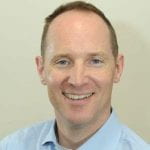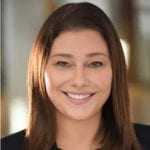Thursday, March 23rd, 2023
Reception 5:00 – 5:30 ET
Lecture 5:30-6:30 pm ET
City View Room, Elliott School of International Affairs
1957 E Street, NW, 7th Floor

We were pleased to invite you to join us on March 23rd, 2023 from 5:00 pm to 6:30 pm EST for a conversation with Carl Richardson, MA ’99, and Sarah Hirsch, BA ’10, as part of the Wenger Family Lecture series on International Business and Finance. This lecture discussed “The Global Economy Post-Brexit: UK and US Perspectives.” IIEP Director Remi Jedwab will serve as the moderator. The event began with a reception from 5:00 – 5:30 pm, followed by the discussion from 5:30 – 6:30 pm.
This event was presented by the Elliott School Office of Development and Alumni Relations and underwritten by the Henry E. & Consuelo S. Wenger Foundation. It is co-sponsored by the Institute for International Economic Policy.
About the Speakers
 Carl A. Richardson, ESIA MA ’99, leads the Richardson family business, alongside his brothers. Richardson is a multi-generational independent family-run trading and investment business which has a real estate and growth capital portfolio that is embedded across the world. Current growth capital investments include an award- winning Swiss technology company, a UK financial services business, the fastest growing automated carwash business in the US, and the largest avocado grower in New Zealand. Real estate holdings are significant in scale and content, encompassing office, residential, distribution centres, leisure and infrastructure properties both nationally and internationally.
Carl A. Richardson, ESIA MA ’99, leads the Richardson family business, alongside his brothers. Richardson is a multi-generational independent family-run trading and investment business which has a real estate and growth capital portfolio that is embedded across the world. Current growth capital investments include an award- winning Swiss technology company, a UK financial services business, the fastest growing automated carwash business in the US, and the largest avocado grower in New Zealand. Real estate holdings are significant in scale and content, encompassing office, residential, distribution centres, leisure and infrastructure properties both nationally and internationally.
Carl is a Fellow of the Royal Geographical Society and a Trustee of the Richardson Brothers’ Foundation. He previously served as an International Officer at HSBC in London, UAE, and Hong Kong, and has also served as an Honorary Captain in the Royal Navy Reserve. He is a member of the Executive Circle of the Elliott School’s Institute for International Economic Policy and previously was a member of the school’s International Council advisory group.
 Sarah Hirsch, ESIA BA ’10, is an economic and financial policy expert and former diplomat. She is currently Vice President of Global Corporate and Investment Banking at Bank of America. Since 2010, Sarah has advised senior public and private sector officials, including heads of state. Her areas of expertise include international economic policy, economic development, capital markets, and monetary policy.
Sarah Hirsch, ESIA BA ’10, is an economic and financial policy expert and former diplomat. She is currently Vice President of Global Corporate and Investment Banking at Bank of America. Since 2010, Sarah has advised senior public and private sector officials, including heads of state. Her areas of expertise include international economic policy, economic development, capital markets, and monetary policy.
From 2012-19, Sarah served at the U.S. Department of the Treasury, most recently as senior advisor to the Under Secretary for Domestic Finance. As Acting U.S. Executive Director at the African Development Bank in Abidjan, Côte d’Ivoire, she facilitated the approval of $12 billion in development finance to countries throughout Africa and established partnerships between the Bank and U.S. government, including the Obama Administration’s Power Africa Initiative, Global Connect Initiative, and the Partnership on Illicit Finance. For her service, Sarah was awarded the Treasury Secretary’s Exceptional Service Award. She is a member of the Executive Circle of the Elliott School’s Institute for International Economic Policy.
About the Moderator
 Remi Jedwab is an associate professor of Economics and International Affairs at the Elliott School and the Department of Economics of George Washington University, the Director of the Institute for International Economic Policy and the Director of the ESIA Initiative on Climate Change and Sustainable Cities at George Washington University, and an Affiliated Scholar of the Marron Institute of Urban Management at New York University. Professor Jedwab’s main fields of research are urban and real estate economics, development and growth, environmental economics, and labor economics. Some of the issues he has studied include urbanization and structural transformation, urban construction and climate change, the economic determinants and effects of transportation infrastructure, and the roles of institutions, human capital, and technology in development and growth. He is the co-founder and co-organizer of the World Bank-GWU Urbanization and Poverty Reduction Conference and the Washington Area Development Economics Symposium.
Remi Jedwab is an associate professor of Economics and International Affairs at the Elliott School and the Department of Economics of George Washington University, the Director of the Institute for International Economic Policy and the Director of the ESIA Initiative on Climate Change and Sustainable Cities at George Washington University, and an Affiliated Scholar of the Marron Institute of Urban Management at New York University. Professor Jedwab’s main fields of research are urban and real estate economics, development and growth, environmental economics, and labor economics. Some of the issues he has studied include urbanization and structural transformation, urban construction and climate change, the economic determinants and effects of transportation infrastructure, and the roles of institutions, human capital, and technology in development and growth. He is the co-founder and co-organizer of the World Bank-GWU Urbanization and Poverty Reduction Conference and the Washington Area Development Economics Symposium.
